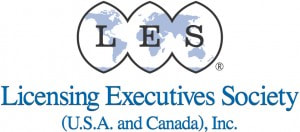|
By: Ashley Sloat, Ph.D. Many of our clients are in the digital health space, so here is a brief update on new developments in FDA regulation of this space. The new FDA Commissioner Scott Gottlieb, M.D. announced last week that the FDA is formally launching a voluntary Pre-Cert for Software Pilot Program. Scott Gottlieb states that: “This new program embraces the principle that digital health technologies can have significant benefits to patients’ lives and to our healthcare system by facilitating prevention, treatment, and diagnosis; and by helping consumers manage chronic conditions outside of traditional healthcare settings.”
The polite program will work similar to TSA pre-check in that companies that have a demonstrated track record of software quality (based on design, validation, and maintenance) will experience an expedited approval route through the FDA (e.g., required to submit less or no information prior to marketing the new tool). In contrast, those companies that require more quality assurance will be required to submit more information before marketing their new digital health tool. A link to the press release from the FDA is here. If you are a company in the digital health space, I encourage you to investigate whether you have any interest in volunteering to be a part of this polite program. We all know that more regulation is coming to the digital health space, now each of us has to determine if we want to contribute to the shape of that regulation.
0 Comments
By: Ashley Sloat Senators Chris Cooms, Tom Cotton, Dick Durbin, and Mazie Hirono recently introduced the Support Technology and Research for Our Nation's Growth and Economic Resilience (STRONGER) Patents Act of 2017 into the Senate. The STRONGER Patents Act seeks to remedy some of the unintended negative consequences of the American Invents Act on patent owners. To highlight a few key aspects, the STRONGER Patents Act focuses on:
(1) Harmonizing claim construction standards across adjudicating bodies to “ordinary and customary meaning of the claim as understood by a person having ordinary skill in the art to which the claimed invention pertains.” (2) Refining and limiting processes by which post-issuance proceedings (e.g., post-grant review and inter partes review) are instituted. (3) Providing a (improved) pathway for patent owners to amend challenged claims during an expedited examination procedure or during a Patent Trial and Appeal Board (PTAB) Proceeding. (4) Restoring presumption of injunctive relief for patent owners when a patent is found valid and infringed. (5) Eliminating USPTO fee diversion so that fees collected by the USPTO can remain with the USPTO. Overall, I think all these changes are positive and exciting (especially from patent owner and practitioner viewpoints), but I will wait to give my full appraisal until after the House and Senate battle it out. The pendulum is starting to swing back in favor of patent owners, but now we just have to make sure we find a good balance between the extremes. By Ashley Sloat and Kristen Wolff Software patenting has come under intense scrutiny in the last decade. Since the landmark case, Alice Corporation PTY. LTD. v. CLS Bank International, there has been a slow trickle of patents found valid under 35 U.S.C. §101. In this seminar, we will review these court cases and distill the opinions down into a set of drafting tips that will increase the probability that your software claims are patentable. However, in the event that your software claims are not a good fit for patenting, we will also discuss various alternative strategies for protecting software. These alternative strategies include advantages and disadvantages that we will also discuss. Part 1 • Overview of relevant software patent court cases • Specification/claim drafting tips to hedge your bets for section 101 Part 2 • Alternatives to patents for protecting software innovations • Advantages and disadvantages to not patenting software
Related MaterialListen in as our expert IP panel breaks down Google v. Oracle and what it means for the future of software development and fair use. This legal contest has been heralded as the “World Series of IP cases” and the “copyright case of the decade”. Program:
The Michigan Chapter of the Licensing Executives Society (LES) is pleased to present this distinguished panel of industry leaders for a discussion on leveraging intellectual property (IP) to increase business value. With success in certain industries (e.g., biotech and software) being almost three times more likely with IP than without it and with the patent premium alone being 22 percent, IP is crucial to the survivability and value of any business. This discussion will present perspectives on how to appropriately identify, utilize and license IP, how IP strategies are adapting to rapidly evolving technologies, and how this is impacting deal flow and valuation. Especially in light of the changing landscape for utility patents, the panel will uncover alternative deal structures as well as the best practices for leveraging all types of IP including design patents, copyrights, trade secrets, and know how. Whether your company is a startup or a global enterprise, appropriately leveraged IP is critical. Agenda: 4:00 pm – 5:30 pm EST – Welcome Reception 5:30 pm – 7:00 pm EST – Panel Discussion 7:00 pm – 8:00 pm EST – Networking Reception 8:00 pm EST – After-event networking in downtown Traverse City, MI Panelists: Jamie Kemler Vice President - Intellectual Property Business Strategy Stryker Corporation Bryce Pilz Director of Licensing University of Michigan, Tech Transfer Skip Simms Senior Vice President Ann Arbor SPARK Redi-Rock International https://iujobs.peopleadmin.com/postings/37176
By: Ashley Sloat, Ph.D. Digital health devices are rapidly becoming a key sector of the medical device and IoT space. This revolution begs us to understand issues that digital health companies are facing. In this post, we will describe what makes digital health companies unique and key challenges of digital health companies. |
Ashley Sloat, Ph.D.Startups have a unique set of patent strategy needs - so let this blog be a resource to you as you embark on your patent strategy journey. Archives
July 2024
Categories |




 RSS Feed
RSS Feed